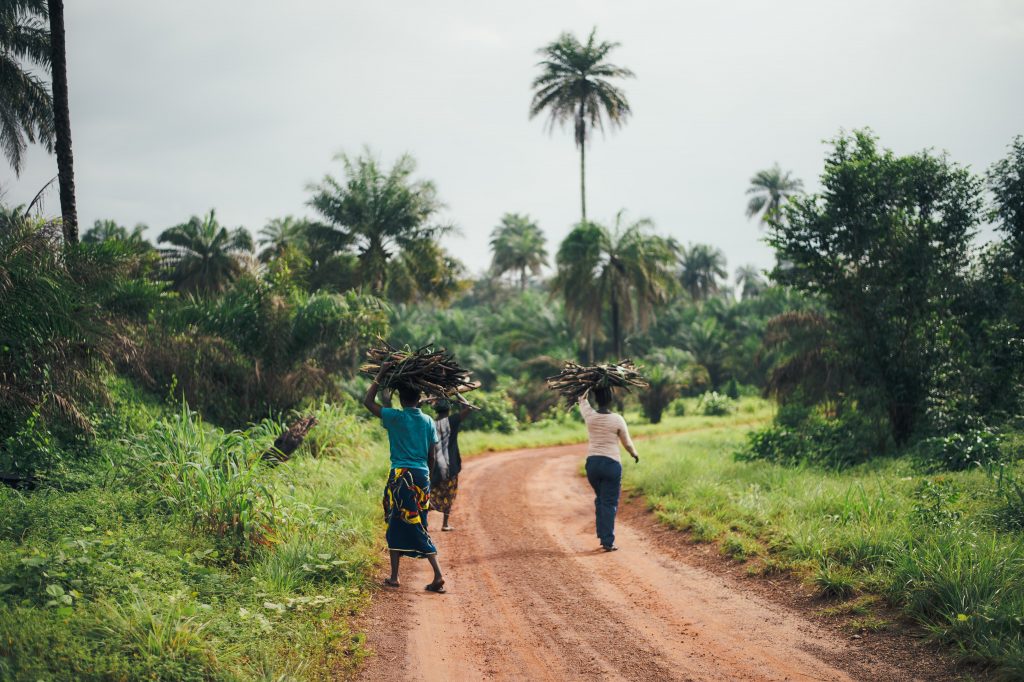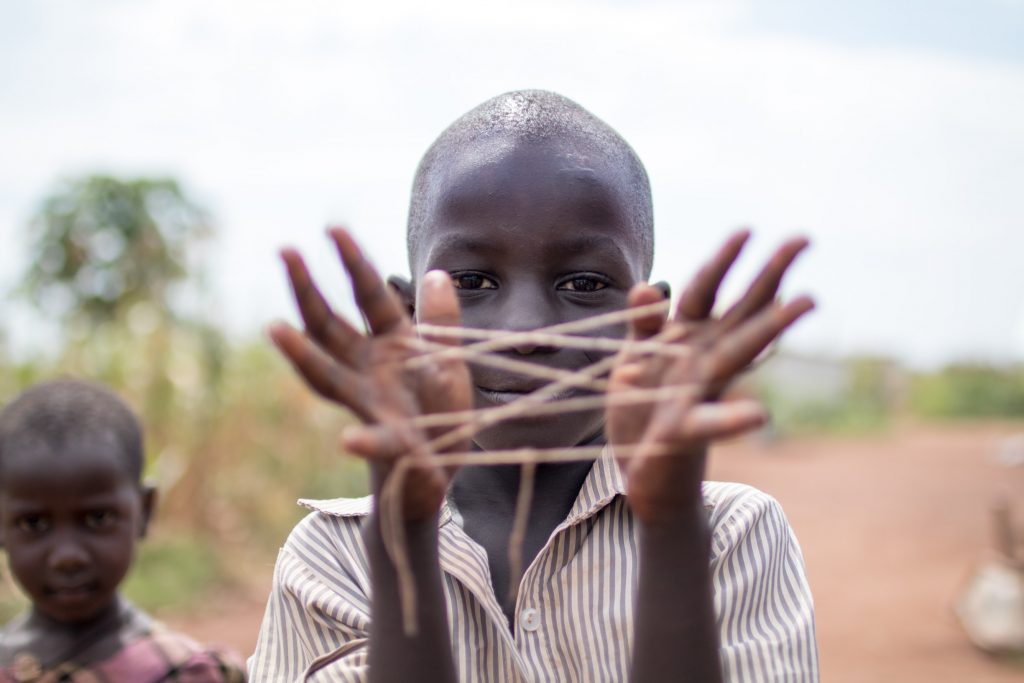I will start this story with Nelson Mandela and Wangari Maathai.
The first one doesn’t need to be addressed with many details because everybody knows him.
The other one is a famous environmentalist and political activist. She planted trees and supported the green belt movement.
These are just two people from Africa, but many more sprung from this poor continent and succeeded even though they were followed by prejudice and racism.
Africa was considered a cultural desert for a long time. But so much has changed for this forsaken continent!
Today, African novelists, artists, musicians, chefs, and others play a huge role in global creativity.
These super- talented men and women have worked really hard and dedicated their life to eliminate this negative stereotype that Africa can’t offer creative, original, and highly educated people.
I mentioned education last, but in reality, it should be in the first place.

When we think about Africa, the last thing on our mind is education.
Poor living conditions, no job opportunities, illnesses, food scarcity – are all primary concerns. However, education shouldn’t be left in the dark – education is the key to improving the lives of African children and providing them with better opportunities.
The early history of education Education of children, prior to the coming of European colonial powers, was traditional.
This means that the children were prepared to take over the responsibilities in their homes, their villages, and their tribes.
Their education was more like an initiation into society.
In some parts of Africa like sub- Saharan one, children, especially boys, were given instructions by their fathers in the form of practical aspects of fishing, cattle-raising, farming, and hunting and their general responsibilities to the community.
Also, most societies performed rituals that represented the end of puberty and a start of a new period of boys’ lives.
At the beginning of the 20th century, this tradition started to change, and children were given more opportunities to get a more formal education.
The promising fact is that education in Africa has risen dramatically in the past years.
The proportion of children who finish lower secondary school has expanded substantially in many countries across Africa.

This shows that everything can be accomplished with hard work and dedication. However, there is still a mass of problems with education on this continent. First, some children are difficult to reach, and their education suffers the most.
They are the biggest challenge. Also, the quality of education in some African countries greatly suffers.
When we take countries in the Sub-Saharan region as an example, we see that the results of education there are devastating.
In third grade less than two out of three children can read a letter, just a half of children can read a word and put the numbers in the correct order.
This region is at the bottom half of the learning scope, which is not really surprising because their income level is also very low.
The pessimistic fact is that learning results don’t seem to be improving.
However, structured pedagogy is giving some positive results.
This includes teacher professional development, providing textbooks for students, teacher’s guides, classroom observation, and giving feedback.
This program was very impressive when it comes to increasing literacy.
The most profitable part of the program was the teacher’s guides.
However, more importantly, the program increased literacy for underprivileged students.
Also, this program showed significant results in increasing test scores in mathematics, all due to teacher guides, and their professional training. One other method for improving literacy is using graphics, which greatly helps students to understand prose, as well as other subjects where they have to cover a lot of information.
Solving the problem of motivation Being a teacher is never easy no matter how high the intrinsic motivation is.

It goes without saying that teachers must be motivated to do their job in order to motivate their students. In some African countries, teachers get a bonus payment depending on student performance.
This kind of incentive is more than welcome because it motivates teachers to really give their best when doing this hard work. The performance of students greatly increased after implementing bonus payments, and they really did well on the tests. In some African countries, there was also a possibility of renewable contracts for teachers who achieved positive results with their students.
All in all both teachers and students felt a greater level of satisfaction.
When it comes to teacher professional development, this program showed positive outcomes.
The special coaching programs effectively boosted student learning results.
Teachers were evaluated and given feedback which greatly improved their teaching skills. For example, one part of teacher training included dividing children in class by learning abilities, rather than by grade level.
This intervention increased students’ results in both the Math and English exam. An alternative method, that also showed excellent results, was assigning teacher assistants to the teachers.
This greatly supported already overburdened teachers. Assistants worked with children who couldn’t complete all their assignments during school time, who had fallen behind with their work after school, or they simply worked with half of the class.
All these methods greatly upgraded student learning. More importantly, children were much more successful on their tests.
Early child education As it is widely known, early childhood education is absolutely crucial for the development of social and cognitive skills.
This fact has been taken seriously in Africa, and since 2017, several community-based preschools were opened in some African countries.
The children who attended these early education institutions had better results on their tests. Generally, the most important fact is that this early education had a positive impact on the most underprivileged children.
The tests which showed children’s improvement were cognitive tests, numeracy skill tests, language, and executive functions tests.
Also, children who attended preschools were more likely to finish secondary schools as well. Another way of increasing young children’s literacy was a home-based program. Some parents of children who were still too young to start school got children’s storybooks and were trained on how to read these books with their children.

This intervention was very successful because these children really expanded their vocabulary before they started going to school.
All these programs for early childhood education showed positive results, so investing time and funds in maintaining this trend is really valuable.
Also, it is important to execute these programs throughout the whole African continent. Education for girls When it comes to educating girls in African countries, there have always been potential problems.
Girls have long been neglected, and have been expected just to serve and do household chores.
However, this has changed in recent years. Implementing programs that cover girls’ education has shown great results but most importantly the programs have reduced adolescent marriages and pregnancies.
Some of the interventions regarding the education of girls involved enabling girls to finish secondary school as well as teaching them to advocate for their own education.
There was a program that provided bicycles to schoolgirls in some African countries, which enabled girls to reduce their commute time and not to be absent from school so much.
Apart from other subjects, girls are taught about health care and reproduction which greatly lowered adolescent pregnancy and enabled girls to actually find a proper job.
All school-based programs regarding girls’ education provided positive outcomes for girls and gave them new opportunities to actually change their lives for the better.
I will finish my story by saying that with hard work and dedication we can really achieve a lot.
Whether this positive trend of educating young children in Africa will continue is uncertain.
However, positive results need to be nurtured and one day children in Africa will live better and more fulfilled lives.
